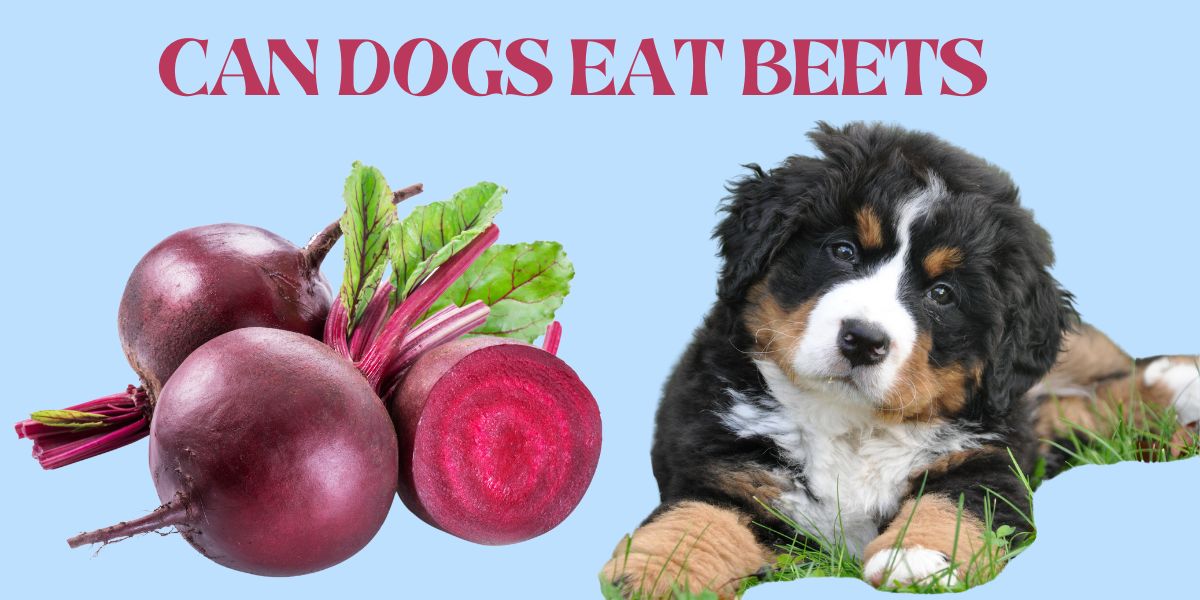Are Beets Safe for Dogs?

Curious about whether it’s safe for your furry friend to snack on beets? This article explores the popular question, “Are beets safe for dogs?” Delving into the nutritional value of beets and potential benefits for your pet, it also covers any precautions to take and expert insights on incorporating this vibrantly colored vegetable into your dog’s diet. Discover how beets can potentially contribute to a healthier lifestyle for your four-legged companion.
Benefits of Beets for Dogs
Vitamins and minerals
Beets are a nutritious vegetable that can provide numerous health benefits for your furry friend. They are an excellent source of essential vitamins and minerals that can support your dog’s overall well-being. Beets are rich in vitamin C, which can boost the immune system and help fight off infections or diseases. Additionally, they contain folate, which is essential for cell growth and development. Beets also provide minerals such as potassium, manganese, and iron, which play critical roles in maintaining proper bodily functions.
Antioxidants
Another advantage of feeding beets to your dog is their high antioxidant content. Antioxidants help to neutralize harmful free radicals in the body, preventing cell damage and reducing the risk of chronic diseases. The natural antioxidants found in beets, such as betanin and betacyanin, can contribute to your dog’s overall health and longevity by protecting their cells from oxidative stress.
Anti-inflammatory properties
Beets are known for their anti-inflammatory properties, making them a beneficial addition to your dog’s diet, especially if they suffer from inflammatory conditions like arthritis. The betalains present in beets have been shown to have anti-inflammatory effects, helping to alleviate joint pain and reduce swelling. Incorporating beets into your dog’s meals can potentially enhance their comfort and mobility, leading to a happier and healthier life.
Potential Risks of Feeding Beets to Dogs
High sugar content
While beets offer various health benefits, it’s crucial to be mindful of their high sugar content. Beets contain natural sugars, and excessive consumption can lead to weight gain and potential dental issues in dogs. If your dog already has diabetes or is prone to weight gain, it’s advisable to consult your veterinarian before introducing beets into their diet.
Beeturia
Beeturia is a harmless condition in which a dog’s urine may turn reddish or pinkish after consuming beets. This discoloration happens when the pigments present in beets are metabolized and excreted through urine. While beeturia itself is generally not a cause for concern, it’s always important to keep an eye on any significant changes in your dog’s urine color and consult a veterinarian if you have any concerns.
Digestive issues
Some dogs may experience digestive issues when first introduced to beets or if they consume them in large quantities. Beets are high in fiber, which can lead to an upset stomach, gas, or diarrhea in sensitive dogs. To prevent such issues, it’s recommended to introduce beets gradually into your dog’s diet and monitor their reaction. If any digestive discomfort persists, it’s best to consult your veterinarian for further guidance.

How to Safely Feed Beets to Dogs
Cooked vs. raw beets
Both cooked and raw beets can be safely fed to dogs, but there are a few factors to consider. Raw beets may provide slightly higher nutrient levels since cooking can cause some nutrient loss. However, raw beets can be challenging for dogs to digest, especially if they have sensitive stomachs. Cooking beets thoroughly can make them easier to digest and incorporate into your dog’s diet. Steaming or boiling beets until they are soft and tender is the preferred method when cooking for dogs.
Proper portion sizes
When introducing beets to your dog’s diet, it’s important to start with small portions. Beets should only constitute a small portion of your dog’s overall meal, usually no more than 10% of their daily caloric intake. As every dog is unique, it’s crucial to consult your veterinarian to determine the appropriate portion size based on your dog’s age, size, and specific dietary requirements.
Introducing beets to your dog’s diet
To introduce beets to your dog’s diet, begin by giving them a small amount as a treat or mix it with their regular food. Watch for any signs of digestive discomfort or allergies, such as vomiting or itching. If your dog tolerates beets well, you can gradually increase the amount over time. Remember to monitor their overall health and consult with your veterinarian if you have any concerns.
Preparing Beets for Dogs
Cooking methods
When preparing beets for your dog, it’s important to choose cooking methods that preserve their nutritional value while ensuring they are safe to consume. Steaming or boiling beets are the preferred cooking methods, as they help retain the vitamins and minerals present in the vegetable. Avoid adding any seasonings, spices, or oils, as these can be harmful to your dog’s health.
The importance of washing
Before cooking or serving beets to your dog, it’s crucial to wash them thoroughly. Beets can sometimes be coated in dirt or pesticide residues, which can be harmful if ingested. Scrub the beets under running water to remove any dirt or debris, or consider using a vegetable wash to ensure their cleanliness.
Removing the skin
While the skin of beets is edible and provides some additional nutrients, it may be challenging for dogs to digest. It’s recommended to peel the beets before cooking or serving them to your dog. Removing the skin can make the beets easier to chew and digest, reducing the risk of digestive issues.

Monitoring Your Dog’s Reaction to Beets
Observing for allergies or sensitivities
When feeding your dog beets, it’s crucial to monitor them for any signs of allergies or sensitivities. Allergic reactions can vary in severity and may include symptoms such as itching, redness, swelling, or gastrointestinal upset. If you notice any adverse reactions, discontinue feeding beets immediately and consult your veterinarian for guidance.
Watching for changes in urine color
As mentioned earlier, beets can cause a temporary change in urine color, turning it pink or reddish. While this discoloration is generally harmless, it’s essential to be aware of any sudden color changes in your dog’s urine. If the urine remains discolored for an extended period or is accompanied by other concerning symptoms, it’s advisable to seek professional veterinary advice.
Noticing any digestive discomfort
Some dogs may experience digestive discomfort after consuming beets, particularly when introduced for the first time. Keep a close eye on your dog for any signs of upset stomach, gas, or diarrhea. If these symptoms persist or worsen, it’s important to consult your veterinarian to determine the cause and find the best course of action.
Alternative Options to Beets
Other vegetables for dogs
If your dog doesn’t tolerate beets well or if you’re looking to introduce variety into their diet, there are several other vegetables that can provide similar nutritional benefits. Carrots, green beans, sweet potatoes, and peas are just a few examples of dog-friendly vegetables that you can alternate with or substitute for beets. Always remember to introduce new vegetables slowly and in moderation.
Commercially available beet dog treats
If you prefer a convenient and pre-portioned option for incorporating beets into your dog’s diet, there are commercially available beet dog treats on the market. These treats are specially formulated to ensure the correct serving size and often contain other nutritious ingredients that complement the beet’s benefits. When selecting commercial treats, be sure to choose reputable brands that prioritize quality and safety.

Consulting with a Veterinarian
Getting professional advice
Before making any significant changes to your dog’s diet, it’s always wise to consult with a veterinarian. They can provide personalized recommendations based on your dog’s individual needs and health conditions, helping you make informed decisions about including beets in their meals. Veterinarians can also address any concerns or answer specific questions you may have regarding feeding beets to your dog.
Discussing your dog’s specific needs
Every dog is unique, and their dietary requirements may differ based on factors such as age, breed, weight, and overall health. By consulting with a veterinarian, you can discuss your dog’s specific needs and determine if beets are an appropriate addition to their diet. Your veterinarian can provide guidance on portion sizes, cooking methods, and potential alternatives, ensuring your dog’s nutritional needs are met.
Addressing any concerns
If you have any concerns or reservations about feeding beets to your dog, don’t hesitate to discuss them with your veterinarian. They can address any specific issues you may have and provide reassurance or alternative recommendations based on your dog’s individual circumstances. Open communication with your veterinarian is essential to ensure the well-being and safety of your furry friend.
Conclusion
Beets can offer several health benefits for dogs when incorporated into their diet appropriately. They are a rich source of vitamins, minerals, antioxidants, and exhibit anti-inflammatory properties that can contribute to your dog’s overall well-being. However, it’s crucial to be mindful of the potential risks, such as their high sugar content and the possibility of digestive issues. By following the recommended guidelines, observing your dog’s response, and consulting with a veterinarian, you can safely introduce beets into their diet and provide them with a nutritious and enjoyable culinary experience. Remember, your veterinarian is always the best resource for specific advice tailored to your dog’s individual needs.